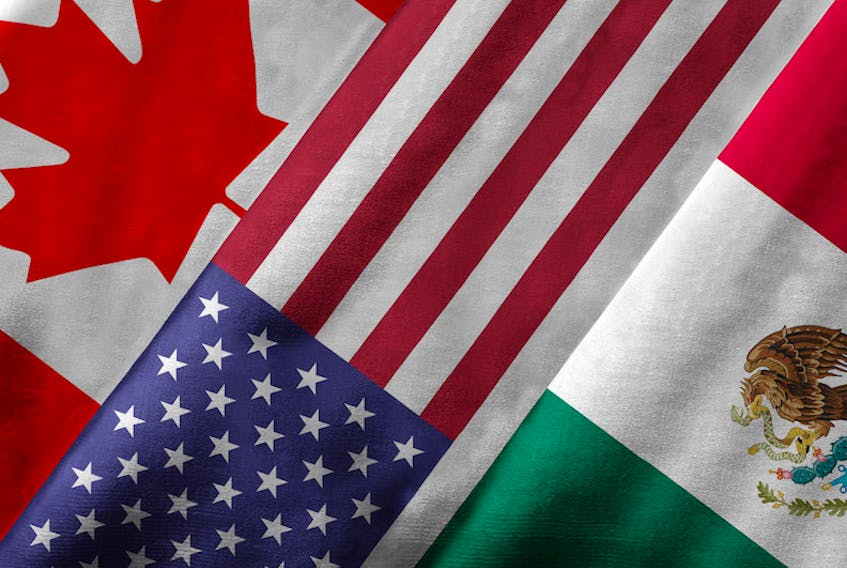Free trade across America’s northern border is at risk of remaining frozen in the 1990s as the veneer of hopeful rhetoric fades from the NAFTA negotiating table. That’s bad news in New England and Atlantic Canada where time-tested trading partners would have benefited from the fulfillment of a more modern, inclusive reboot of the deal.
Although two of the region’s top trade commodities, energy and lumber, fall largely outside the parameters of NAFTA, the renegotiation might have struck pay dirt for this northeastern part of North America that relies on shrewd partnerships and ambitious deal-making to compete globally. Instead, defensive reflexes have crowded out the best intentions of dragging the trade deal into this decade and the ones that lay ahead.
New England and Eastern Canada (Atlantic Canada and Quebec) form an economic neighbourhood of 25 million people sewn together by integrated supply chains and common challenges. Those north-south trade ties predate the east-west corridors that developed later with the enthusiastic assistance of prescriptive government policies on each side of the border.
Then - as now - political agendas had a way of getting in the way of the natural ebb and flow of business across borders. A true new free trade deal, brokered to unleash economic growth and remove obstacles to cooperation, could have helped to outlaw unexpected interference by governments.
Last week, the U.S. Commerce Department announced it had finalized steep duties against Canadian softwood lumber imports despite the protests of American politicians like Maine’s Republican Governor Paul LePage. He loudly lobbied the Trump administration in favour of more leniency for Canadian imports in order to help save Maine jobs that are closely tied to the sector’s integration north of the border.
LePage also championed the Energy East pipeline before it was cancelled earlier this fall. It was a major blow for the region, but alternative solutions could be found on both sides of the border. In fact, Cianbro Corporation is again promoting a so-called east-west corridor highway project that could also connect the region’s energy assets via hydro lines and oil pipelines.
A rebooted NAFTA could have found creative solutions to address recurring trade disputes and other obstacles that undermine the confidence needed to promote major ventures and investments on either side of the border.
NAFTA could still be saved, and there is a concerted lobbying effort currently deployed by U.S. businesses and the Canadian government. But if saving NAFTA means allowing the deal to sit frozen in the 1990’s it will be a lost opportunity to build a more inclusive platform for growth in New England, Atlantic Canada and the rest of North America.
Alternatively, if President Trump successfully follows through on threats to dismantle NAFTA, the ensuing ad hoc bilateral negotiations could embolden governments to again engage in the business of picking winners and losers among regions and industries.
For all their differences, Prime Minister Trudeau and President Trump each rose to power by successfully appealing to middle class voters in their respective countries.
While Trump appealed to disenfranchised voters in the rust belt and rural red states, Trudeau made inroads with traditionally powerful constituencies in vote-rich cities in Ontario and Quebec. Trump promised to bring jobs and clout back to the states that rallied to his promise to “Make America Great Again,” and Trudeau’s election win shifted the balance of political power back to central Canada.
As the latest round of NAFTA negotiations unfolds in Mexico City, negotiators from the United States and Canada will try to capture more middle ground to deliver for middle class constituencies on each side of the border. Meanwhile, free traders in New England and Atlantic Canada will go on about their business, striking deals from the sidelines.
- Jesse Robichaud is a Consultant at Ensight, a public affairs firm in Ottawa. He served as an adviser to New Brunswick premier David Alward and worked as a journalist in Fredericton and Moncton.









